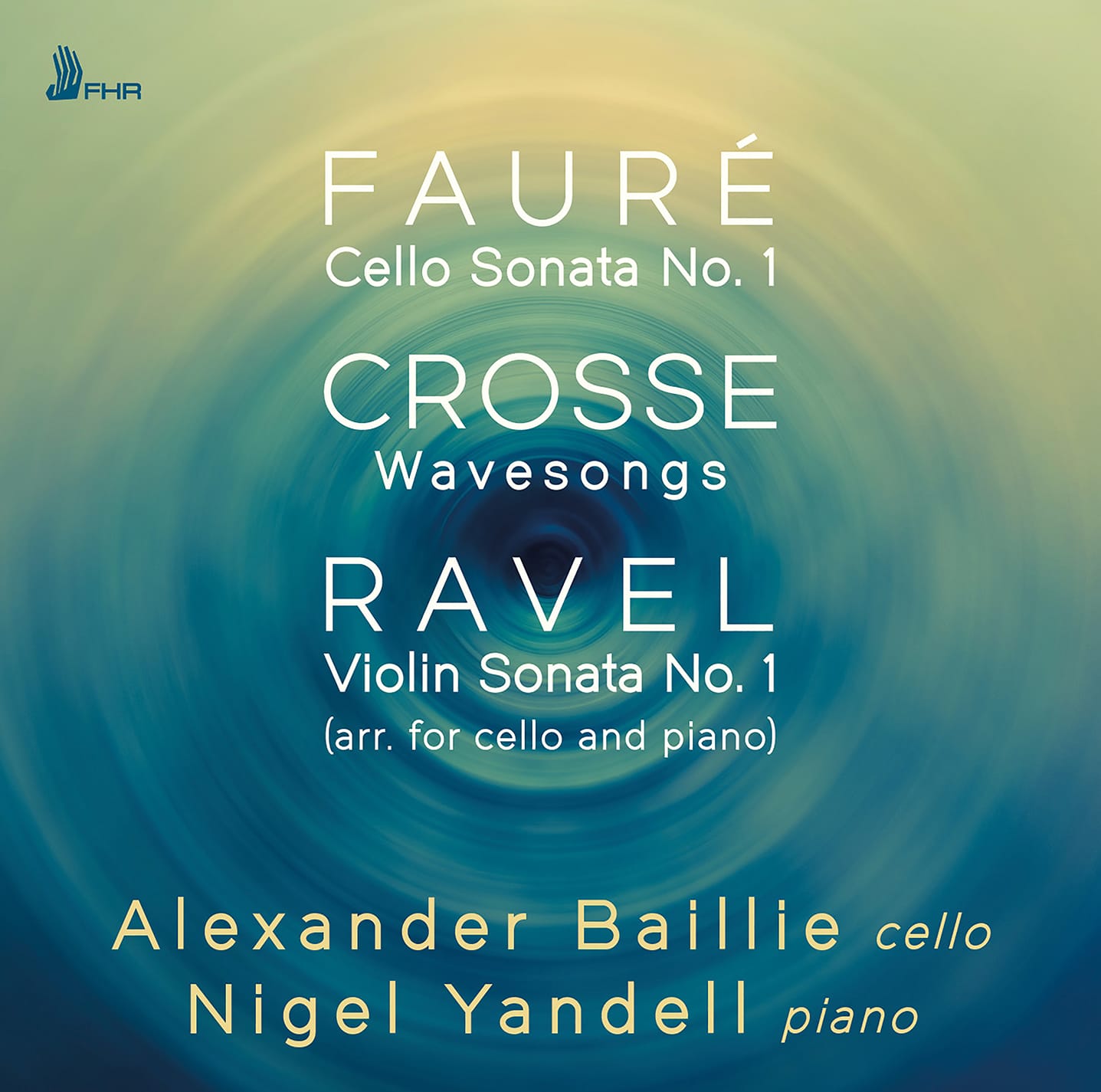Wavesongs: Gordon Crosse meets Fauré & Ravel

This is a fascinating disc or transcriptions and a work by a sadly recently deceased contemporary composer, Gordon Crosse (1937-2021). You can hear excerpts on the following promo video:
Fauré's First Cello Sonata in D-Minor is a late work (Op. 109, doing from 1917). The disquiet of the first movement almost feels unFauré-like. The first movement is notably jittery; Nigel Yandell is superb in his handling of the piano, Alexander Baillie the epitome of confidence:
The slow movement moves towards what the booklet notes to this release by Richard Whitehouse call “an eloquent culmination suffused with fatalistic poise”. Baillie and Yandell give this as a melancholy, memorable song without words related in aura to the famous Requiem:
The finale retains a tensile disquiet underneath the surface. Fauré's trademark lyricism is there, but so is a sophistication of utterance forged in the crucible of human experience. The piano part is maximally difficult, and Yandell is bot fluent and fervent; Baillie's cello sings memorably:
Primary competition here comes from Steven Isserlis and Cinnie Shih on Hypeion, on his disc A Cello in Wartime (which also includes the rarely-heard Cello Sonata by Frank Bridge).
Born in Bury, Lancashire, in 1937, Gordon Crosse attained a First Class degree at Oxford with research into early 15th-Century music. HIs star was in the ascendant as a compose in the 1960s and 1970s, but moved towards computer programming and music technology from 1987. Here's his bio from OUP (Oxford University Press)., plus a short article on Crosse by John Turner on Musicweb-International.
One hopes this disc will make a case for further investigation/recordings/reissues of Crosse;'s music. Wavesongs (1983) for cello and piano is bristlingly urgent in demeanour. This is actually Baillie's second recording of the piece (teh other is on NMC with the late Andrew Ball). The performance here is split into individual movements in terms of tracks, so as to orientate the listener and to provide the titles of movements (although they blend seamlessly).
Here, waves are not just those of the sea, but also fragments of melody "lodged deep within the subconscious". A haunting whistling at one point forms part of the convas. Sea shanties emerge from the depths in the first movement proper (it is preceded by an introduction:" Deep Sea"):
Evocations of storm are visceral, the keening of the cello against the never-flagging, active piano:
The piece is extraordinary. The depth of the "Aria" is remarkable, a moment of pre-tempest stasis that reveals much about Crosse as a composer: his harmonic awareness and consistency, his underlying lyric impulse:
This disc is available at Amazon here; Spotify below. The NMC performance of Wavesongs is on Amazon here.
